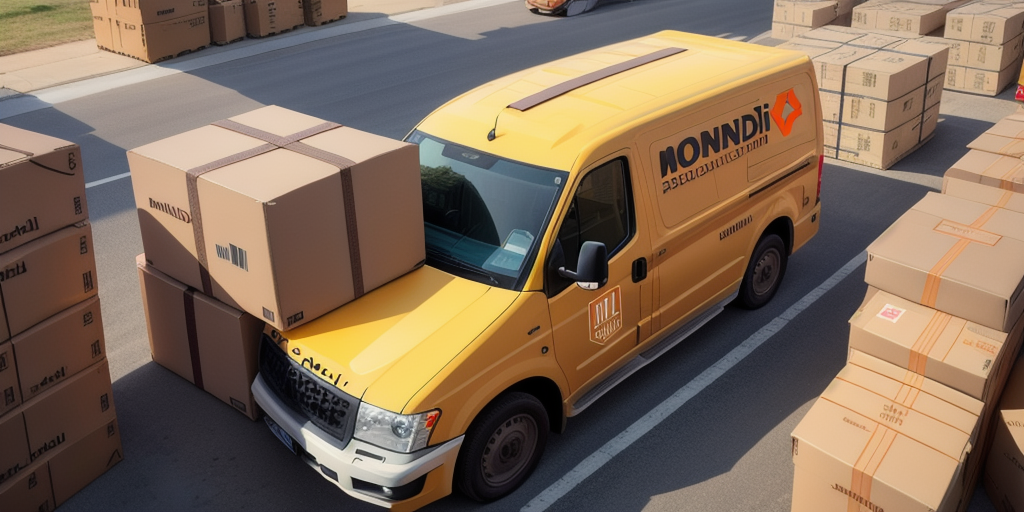FedEx vs. UPS: A Comprehensive Comparison
FedEx and UPS are two of the leading names in the parcel delivery industry, renowned for their quick and reliable services. Each company possesses unique strengths and weaknesses that cater to different customer needs. This comparison delves into their histories, services offered, pricing, shipping options, tracking and customer service, sustainability efforts, technology integration, employee treatment, workplace culture, market share, consumer reviews, satisfaction ratings, and future outlook.
Company Histories
FedEx
Founded in 1971 by Frederick W. Smith, FedEx was established with the vision of creating an air cargo carrier capable of overnight shipping. Starting with a single airplane, FedEx has expanded into a global network, delivering approximately 15 million packages daily as of 2023. The company's innovations in real-time package tracking set new industry standards.
UPS
UPS, established in 1907 by James E. Casey, began as a messenger service in Seattle, initially delivering messages and packages on foot and by bicycle. Transitioning to truck deliveries, UPS became synonymous with its brown delivery trucks. Today, UPS stands as the world’s largest package delivery company, handling around 21 million packages daily. The company has continually evolved, embracing technological advancements and expanding its global footprint.
Services and Shipping Options
Services Offered
Both FedEx and UPS offer a range of services, including ground and air delivery, international shipping, and freight solutions. However, there are distinct differences:
- FedEx: Renowned for overnight delivery and handling large, oversized items. It also offers specialized services like FedEx Freight and FedEx Ground.
- UPS: Provides a broader array of delivery options, including same-day delivery, freight services, and specialized shipping for healthcare and industrial products.
Shipping Options
Both companies enhance their service portfolios with various shipping options:
- FedEx: Excels in fast delivery, particularly overnight services, and offers international shipping with a focus on speed and reliability.
- UPS: Delivers a more diverse range of options, including same-day, weekend delivery, and flexible international services.
Additionally, FedEx has a dedicated healthcare solutions division, while UPS offers specialized services for perishable goods through its UPS Healthcare and UPS Cold Chain divisions.
Pricing and Rates
Both FedEx and UPS provide competitive pricing structures that vary based on delivery service, package weight, dimensions, and destination. According to a 2023 Statista report, UPS generally tends to be slightly more expensive than FedEx due to its extensive range of services and strong emphasis on the B2B market. However, both companies offer discounts and promotional rates for frequent shippers and large volume customers.
Businesses often prefer UPS for its reliable delivery times and superior tracking capabilities, which are crucial for maintaining supply chain efficiency. Additionally, UPS boasts a larger network of physical locations, offering greater convenience for package drop-offs and pickups.
Tracking and Customer Service
Tracking Systems
FedEx and UPS both utilize advanced tracking technologies to provide real-time updates on package locations:
- FedEx: Pioneered real-time package tracking, allowing customers to monitor shipments at every stage.
- UPS: Enhanced its tracking systems to include detailed delivery alerts and estimated delivery times.
Customer Service
Customer service experiences vary between the two:
- UPS: Offers more responsive phone and email support, along with extensive self-service options such as online package tracking, delivery alerts, and 24/7 customer service hotlines.
- FedEx: While it provides efficient online tracking, some customers have reported less responsive customer service compared to UPS. However, FedEx still maintains a range of self-service features for customer convenience.
Sustainability and Technology
Environmental Efforts
Both FedEx and UPS are committed to reducing their environmental impact:
- FedEx: Invests in alternative fuel vehicles, energy-efficient facilities, and has set goals to achieve carbon-neutral operations by 2040.
- UPS: Utilizes alternative fuels, energy-efficient vehicles, and sustainable packaging materials. UPS aims to reduce its carbon footprint by 12% by 2025 and achieve carbon neutrality by 2050.
Both companies offer carbon-neutral shipping options, allowing customers to offset their carbon emissions.
Technology Integration
Technological advancements play a crucial role in enhancing operational efficiency:
- Advanced route optimization software to minimize delivery times and fuel consumption.
- Real-time tracking systems that provide customers with up-to-date information on their shipments.
- Exploration of artificial intelligence (AI) and machine learning to predict delivery patterns and improve service reliability.
UPS has been a pioneer in drone technology for future delivery solutions, while FedEx is actively developing autonomous delivery vehicles to streamline operations.
Employee Treatment and Workplace Culture
Employee satisfaction and workplace culture significantly impact company performance:
- UPS: Known for its hierarchical management style and strict work schedules. The company offers competitive benefits but has faced criticism regarding work-life balance and limited investment in employee training.
- FedEx: Promotes an entrepreneurial and decentralized culture with flexible work arrangements. FedEx emphasizes ongoing employee training and development, fostering a more dynamic and supportive work environment.
According to a 2023 Glassdoor survey, FedEx employees report higher satisfaction regarding career growth and workplace flexibility compared to UPS employees.
Market Share and Consumer Satisfaction
Market Share
Based on the latest data, UPS holds approximately 46% of the U.S. package delivery market, while FedEx commands around 30%.[1] The surge in e-commerce has significantly driven growth for both companies, especially during and post-pandemic.
Consumer Reviews and Satisfaction
Customer satisfaction ratings reveal nuanced differences:
- UPS: Often praised for its reliable, on-time deliveries and comprehensive customer support.
- FedEx: Celebrated for its speed and flexibility in handling urgent shipments.
According to the 2022 J.D. Power U.S. Package Delivery Study, UPS ranks slightly higher in overall customer satisfaction compared to FedEx, particularly in areas of delivery accuracy and customer service responsiveness.
Future Outlook
The parcel delivery industry is poised for continued growth, driven by the expanding e-commerce sector. Both FedEx and UPS are investing heavily in technology and sustainability to stay competitive. However, they face emerging competition from new entrants like Amazon's logistics arm and Uber's expanding delivery services.
Key future developments include:
- Increased automation and use of AI to enhance delivery efficiency and predict customer needs.
- Expansion of green logistics initiatives to meet global sustainability standards.
- Adoption of autonomous vehicles and drones to reduce delivery times and operational costs.
In conclusion, choosing between FedEx and UPS depends on specific requirements such as shipping speed, pricing, and service options. Both companies offer reliable and efficient services, continually evolving to meet the dynamic demands of businesses and individuals worldwide.
For more detailed insights into the parcel delivery industry, refer to reputable sources like the Statista Package Delivery Overview and industry reports from academic publications.








